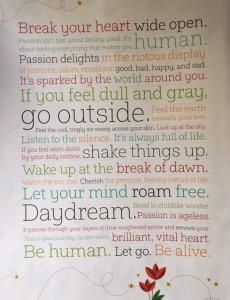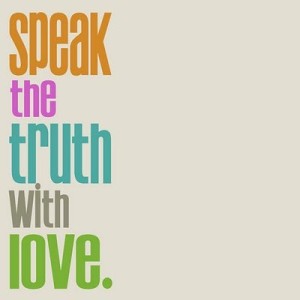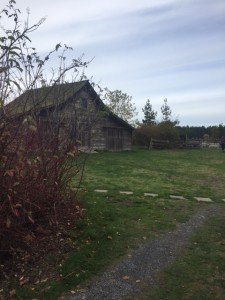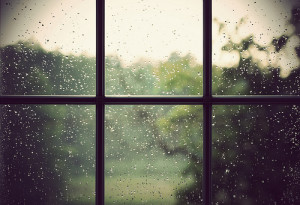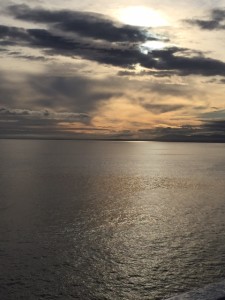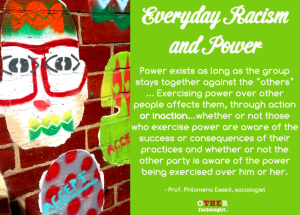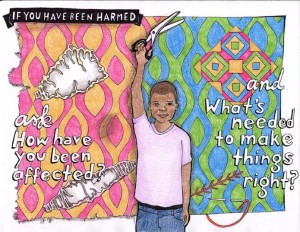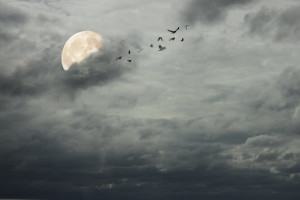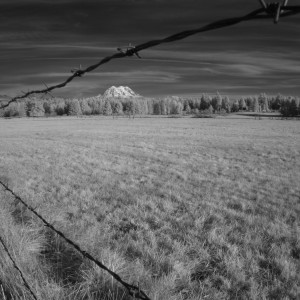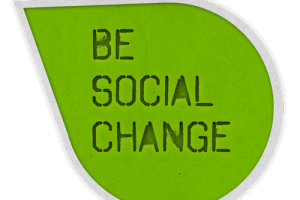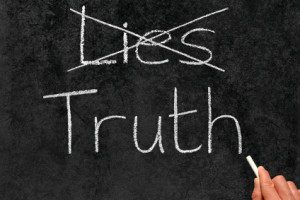If you're John Muir you want trees to live among. If you're Emily, a garden will do. Try to find the right place for yourself. If you can't find it, at least dream of it. ~ When one is alone and lonely, the body gladly lingers in the wind or the rain, or splashes into the cold river, or pushes through the ice-crusted snow. Anything that touches. ~ God, or the gods, are invisible, quite understandable. But holiness is visible, entirely. ~ Some words will never leave God's mouth, no matter how hard you listen. ~ In all the works of Beethoven, you will not find a single lie. ~ All important ideas must include the trees, the mountains, and the rivers. ~ To understand many things you must reach out of your own condition. ~ For how many years did I wander slowly through the forest. What wonder and glory I would have missed had I ever been in a hurry! ~ • Beauty can both shout and whisper, and still it explains nothing. ~ • The point is, you're you, and that's for keeps. [Photo: Lopez Island, San Juan's, Washington]
‘…feeling lighten.’
“For only while telling the truth does the truth lighten us.
For only while loving do the pains of feeling lighten.”
-Mark Nepo
✿
“Don’t get weary though the way be long.”
-Vincent Harding
‘Anything that touches…’
October 29, 2016Leaves and Blossoms Along the Way: A Poem
Tenderness for being awake…
‘Each of these separations – – teaching before learning, leaving before staying, anticipating rather than entering – – left me drained of my deepest resource, the energy of my life force. Removing myself, even from pain, only left me pale and unable to continue.
When needle or hand or rain or sun hits the skin, the only thing to do is meet its exact touch from the inside. For this moment of inner meeting outer releases an electricity of spirit that gifts us with a tenderness for being awake.’
-Mark Nepo
Pro-wrestling universe.
“…authenticity is a foreign concept in this world.”
And what lesson can we learn from politics importing pro wrestling’s mindset? Once you see it, you can’t unsee the connection. Worth noting that one of the key narratives of pro wrestling is the fake within the fake–someone is always claiming that the outcome is rigged. (In wrestling, of course, it is rigged. And so is the complaining.)
Pro wrestling works as a play and a medium because the people who are part of it realize that it’s fake.
It turns out that modern media is a perfect match for the pro-wrestling approach.
You can put on a show, with your own media, as often as you like. And that show is, to many, remarkable, and so it spreads.
And there lies the danger, the opportunity for pro-wrestling thinking to corrupt our society: When the fans, or worse, the participants, don’t realize that it’s fake.
In real life, the laws of physics actually work. In real life, blood feuds rarely end well. In real life, accepting the ref’s decisions is the only way to have civilization…
The filter bubble creates an echo chamber, and reality stars are pushed to be more like cartoonish pro wrestlers and less like responsible human beings. If it bleeds, it leads.
You probably work with people who are living in their own pro wrestling universe. These are people who are so in love with their version of reality and their goals that they view the real world as an affront, an intrusion on the way they insist things turn out.
Reality remains our common ground, the best one we have to work with.
-Seth Godin
A more perfect union.
Losing Our Illusions
A few years ago, my wife and I spent a week hiking on the North Rim of the Grand Canyon, returning to a comfortable room at the lodge each night for what I fondly call “roughing it.” As we set out on our day hikes, we’d often see kids messing around at the edge of the Canyon where it would be easy to slip, fall, and die. If their parents were watching, they weren’t saying anything, and the kids responded to our warnings with the gimlet eye.
When we met a park ranger on the trail, I told him I was baffled by this parental neglect. He shook his head and said:
I’m not sure it’s outright neglect. A surprising number of folks think of the Canyon as a theme park, a fantasy land that may look dangerous but isn’t, where hidden nets will save you from injury or death. Every day I have to remind some people that the Canyon is real, and so are the consequences of a fall of hundreds of feet. I guess some people prefer illusions to reality — even though illusions can kill you.
The ranger named a problem larger and more pervasive than the fantasy that the Grand Canyon is Arizona’s Disneyland. We Americans prefer illusions to realityat every level of our common life, even though illusions can kill us. Why? Because indulging our illusions comforts us — especially when they’re supported by a culture that loves to play “let’s pretend.”
That culture goes back at least as far as 1776 when America proclaimed the “self-evident” truth that all people are created equal — then proceeded to disenfranchise women, commit genocide against Native Americans, and build an economy on the backs of enslaved human beings. Today, our culture of illusions threatens to take us over the edge, not only on basic issues of justice but in critical sectors of our society like education, religion, and politics.
Let’s start with education. Educating a child is a challenging job, especially when we get real about the world in which kids live. It’s a world where nearly one fourth of our children live in food-insufficient homes and come to school too hungry to learn; where public schools are starved for resources as the push to privatize K-12 education continues apace; where many kids need help with heartbreaking personal problems while schools can’t afford to hire counselors.
Truly educating a child would mean adapting to the circumstances of the children in our care, including such “extracurricular” services as providing morning nutrition for those who need it. We must teach core subjects, of course, and hold teachers accountable for results — but we also need to teach life skills like emotional intelligence, relational trust, and problem-solving. Put it all together, and truly educating a child is complex and costly, though not nearly as costly as failing to do so.
Confronted with hard realities, we’ve given up on educating children. Instead, we’ve become obsessed with non-stop high-stakes testing, driven by the illusion that passing standardized exams equals getting an education. One way or another, the test scores must go up — even if that means “teaching to the test,” or getting rid of “irrelevant” subjects like music and art that aren’t easily tested, or telling adults to alter kids’ answers if they are wrong.
Surely most of us know that being able to pass tests is a far cry from being educated. But in the face of education’s real challenges, we are too comforted by our illusions to mind the difference. In fact, we double down on our illusions by passing legislation (e.g., “No Child Left Behind” and “Race to the Top”) that multiplies the damage done to our kids, their teachers, and our schools.
Who’s the “we” behind all this? You and I and all who make up “We the People” — we who have allowed our legislators to give the “testing illusion” the power of law and have voted down the tax hikes that real education requires.
The world of organized religion is another place where we often favor illusion over reality. No, I’m not about to argue that faith is fantasy. As a person of faith, I believe we have two eyes: the eye of the mind and the eye of the heart. With one we see the empirical world as known to science and reason. With the other we see invisible realities as known in the great spiritual traditions, including secular humanism. Only when our eyes work together can we see life steadily and see it whole, or so I believe.
The problem is that too many lay people in the Christian churches — the only form of organized religion I know personally, as an insider — have embraced the illusion that we can avoid spiritual challenges by hiring clerical proxies. As long as we’re in the pews on Sunday and there’s a clergyperson up front reading the Scriptures and preaching the Word, we can pretend we’re making a personal spiritual journey. In truth, we’re on a bus touring the Holy Land, while an ordained driver speaks into a mic, telling us what we’re seeing and what it means.
The sadness is that “real church” — where lay people as well as clergy do inner spiritual work — can make a difference in the real world. Need evidence? See the Civil Rights Movement, where the “habits of the heart” nurtured in the black church by generations of African Americans flowered in the nonviolent movement that advanced racial justice in the 1950s and 1960s.
Today, there are many clergy who want the church to reclaim that kind of reality. They work hard to encourage the ministry of the laity in places like the family, the workplace, and civil society, and to transform passive parishioners into active communities of support for such ministries.
But woe be to the clergyperson who pursues that vision too vigorously. More than a few have been pushed out by lay people who insist on having paid professional who will “do their religion” for them. The notion that a person can have a spiritual life by proxy is as illusory as the notion that good test scores equal being educated. This kind of religious unreality is one of the reasons many have left the church in search of spiritual nourishment: illusions are thin soup.
Then there’s politics, a field so rife with illusions it’s hard to know where to begin. But there’s one persistent American illusion that leaps out at me: “exceptionalism,” the claim that “the United States is the greatest nation on earth.” That’s a claim that frequently takes us beyond the virtue of national pride and into the sin of national arrogance.
What makes that claim illusory is, of course, the facts. On global rankings of many serious social ills, the U.S. scores poorly compared to other countries — but how many of us accept that simple reality? I’m talking about things like mass shootings and other gun deaths, numbers and percentages of incarcerated citizens, infant mortality rates, and child poverty and all that goes with it. Then there’s the fact that the evil practice of enslaving human beings is still with us in disguise, as Michelle Alexander has persuasively argued in The New Jim Crow.
If America’s founders were to come back to check things out — having had a lot of time to contemplate and do penance for their own mortal sins — I don’t believe they’d buy the idea that our task in 2016 is to make America great again. After Googling “Trail of Tears,” “Civil War,” “the Great Depression,” “Japanese internment camps,” and “Vietnam,” to name just a few, they’d ask us to choose a period in U.S. history of which it could truly be said, “Back then, we were great!”
Next, the founders would remind us that, as early as 1787, they knew that the truly great American task would never be to reclaim a mythical utopian era. Instead, it would be to work forever on forging “a more perfect Union” — and the founders gave us a suite of political institutions brilliantly designed to do exactly that. It’s not their fault that “We the People” have allowed our leaders to lay waste to those institutions in recent years.
I believe that most Americans want to take on the real problems bedeviling this country. Doing so demands that we dismantle the culture of illusions that blinds us to reality. Culture change is neither quick nor easy — it will take a long time to find our way through the smoke and mirrors. But all long journeys begin with one small step, so here’s a modest proposal: let’s reclaim “disillusionment” as a word that names a blessing rather than a curse.
When a friend says, “I’m so disillusioned!” about this or that, why do we say, “I’m so sorry! How can I help?” We ought to say, “Congratulations! You’ve just lost an illusion! That means you’ve moved that much closer to reality, the only place where it’s safe to stand!”
Right now we’re hip-deep in an election year that offers us a rare opportunity to become seriously disillusioned and more grounded in reality — not only about the state of the nation but of education and religion as well. When fact vs. fiction becomes a non-issue in politics, might it be because in school millions of us were taught to pass tests, but not to challenge claims, ask questions, do research, and think for ourselves? When millions of us find racism, bigotry, sexism, and xenophobia no barrier to high office, might it be because in church we let someone else “do religion” for us, allowing our unexamined inner lives to be polluted by a toxic fear of “otherness?”
As we lose our illusions, we’ll see reality more clearly and develop better solutions to our most pressing problems. As we embrace the fact that we don’t live in a theme park but on the rim of the Grand Canyon, we’ll understand the urgent need to walk ourselves and our kids back from the edge of the abyss onto solid ground.
☆☆•*¨*•.¸¸☆☆
October 28, 2016New Moon is Sunday, October 30 at 10:30 AM Mountain Daylight Time (PDT).
POWERPATH
‘This is a good moon to get clear on new intentions and to see your priorities so that you can maintain any new found balance in your life. If you have weathered a big change, now would be a good time to anchor whatever new situation the change has brought into your life.
If life has been a bit challenging for you recently, focus on clearing and completing what you need to be done with. Use Death as an ally to make it permanent.’
Minding the gap.
October 27, 2016(Photo: San Juan’s Lopez Island, Washington, October 2016)
‘Because the space between what we intend and what we do is often great, we keep beginning. Because the gap between what we feel and what we say is often surprising, we keep trying. Because the field between what we experience and what we understand is so vast, we keep growing.’
︶⁀°• •° ⁀︶
So often we refuse to listen, we become obsessed with remaking the world in our own image, rather than opening the spirit of what is. At the deepest level, ours is not to make ourselves heard but to be still enough to hear. As the Native American Elder Sa’k’ej Henderson says, “To truly listen is to risk being changed forever.”’
-Mark Nepo
‘…stop making, stop doing, stop thinking…and just listen…’
Gaia.
‘Those who dwell among the beauties and mysteries of the earth are never alone or weary of life.’ -Rachel Carson
(Photo: Salish Sea, October 2016)
Asking better questions.
October 25, 2016Cultural Organizing:
This disproportionately harms low income Students of Color, exacerbates the large opportunity gaps that already exist, and fosters what has come to be known as the school-to-prison pipeline.
In response, we have seen rapid growth of the restorative justice movement, which offers a radically different approach. Restorative justice asks that we make a paradigm shift in the way we think about “crime” and “misbehavior.” As Dr. Carolyn Boyes-Watson at the Center for Restorative Justice at Suffolk University explains,
“Rather than privileging the law, professionals and the state, restorative resolutions engage those who are harmed, wrongdoers and their affected communities in search of solutions that promote repair, reconciliation and the rebuilding of relationships. Restorative justice seeks to build partnerships to reestablish mutual responsibility for constructive responses to wrongdoing within our communities. Restorative approaches seek a balanced approach to the needs of the victim, wrongdoer and community through processes that preserve the safety and dignity of all.”
Within this realm, practitioners have developed a wide range of “restorative practices” — such as victim-offender dialogues and peacemaking circles — often drawing on conflict resolution practices from indigenous societies around the world. But restorative justice cannot be reduced to a set of practices. It is a way of thinking about and approaching conflict. It requires a shift in how we relate to one another. It is about developing a restorative culture in our schools and communities.
Morality & Compassion
[Photo: San Juan’s/Lopez Island, Washington]
“How is one to live a moral and compassionate existence when one is fully aware of the blood, the horror inherent in life, when one finds darkness not only in one’s culture but within oneself? If there is a stage at which an individual life becomes truly adult, it must be when one grasps the irony in its unfolding and accepts responsibility for a life lived in the midst of such paradox. One must live in the middle of contradiction, because if all contradiction were eliminated at once life would collapse. There are simply no answers to some of the great pressing questions. You continue to live them out, making your life a worthy expression of leaning into the light.”
Barry Lopez, “Arctic Dreams”
Seth Godin. John Oliver. And Bernie.
October 17, 20163rd party vote? Not this election. Seth Godin explains with ketchup, John Oliver offers his 18 minutes of persuasion, and Bernie, well Bernie could be a powerhouse in the senate with a democratic majority.
Seth:
Sir Kensington’s Ketchup is better ketchup. Most adults who try it agree that it’s more delicious, a better choice. Alas, Heinz has a host of significant advantages, including dominant shelf space, a Proustian relationship with our childhood and unlimited money to spend on advertising.
The thing is, you can buy Sir Kensington’s any time you want to. And when you buy it, that’s what you get.
You’re not buying it to teach Heinz a lesson. You’re buying it because that’s the ketchup you want.
The marketing of Sir Kensington is simple: If you want better ketchup, buy this, you’ll get it.
Elections in the US don’t work this way.
I’m calling it a third-party problem because the outcome of third-party efforts don’t align with the marketing (and work) that goes into them.
Ross Perot, the third-party candidate who ran against Bush and Clinton, cost Bush that election. The people who voted for Perot got Clinton, and it’s pretty clear that the Republicans learned nothing from this, as the next winning candidate they nominated was… George Bush.
Ralph Nader, the third-party candidate who ran against Bush and Gore, cost Gore that election. The people who voted for Nader got Bush, and it’s pretty clear that the Democrats learned nothing from this, as the next person they nominated was… John Kerry.
[Irrelevant aside: John Kerry was married to the heir of the Heinz Ketchup fortune.]
[I’m calling it a ‘problem’ because I have such huge respect for people who care enough and are passionate enough to support change. The problem is that since Gus Hall, and then John Anderson and then the more recent candidates, just about all the changes that third parties have tried to bring to national politics have foundered. It just isn’t a useful way to market change in this country.]
If enough people spent enough time, day after day, dollar after dollar, we could fundamentally alter the historic two-party system we have in the US. But it’s been shown, again and again, that the easy act of letting oneself off the hook by simply voting for a third-party candidate accomplishes nothing.
The marketing of the third-party candidate is: Teach those folks a lesson, plus, you’re not on the hook for what happens. But…
No one in government is learning a lesson.
And you don’t even get who you voted for.
The irony is not lost on me. A small group of voters who care a great deal are spending psychic energy on a vote that undermines the very change they seek to make.
It’s a self-defeating way of letting yourself off the hook, but of course, you’re actually putting yourself on the hook, just as you do if you don’t vote at all.
No candidate has earned a majority of all potential (regardless of registration) voters, not once in my lifetime. Which means that the people who don’t vote, or who vote for a third-party candidate, have an enormous amount of power. Which they waste.
Yes, it’s on you. Your responsibility to vote for one of two people, and to be unhappy with that conundrum if you choose. And then work to change the system, and keep working at it…
But it’s not like ketchup. With ketchup, you get what you choose. With voting, we merely get the chance to do the best we can on one particular day, and then spend years working for what we might want.
It turns out that democracy involves a lot more than voting.
John Oliver:
And this.
[The Nation]
Paul Ryan: f the GOP loses seats in Congress, Bernie Sanders could become the Senate Budget Committee Chairperson.
The senator from Vermont is the ranking member of the budget committee, and if Democrats gain control of the chamber on November 8, he would be in line to chair it. But Sanders could also end up chairing then powerful Senate Health, Education, Labor and Pensions (HELP) Committee, which he could use to advance many of the proposals (for affordable college, empowering unions and investing in public-health programs) that made his bid for the Democratic presidential nomination so popular.’
Bernie Sanders:
“The Washington Post, in an excellent article, showed us how far the country is moving toward becoming an oligarchy. Incredibly, just TEN donors have poured more than $1.1 BILLION into super PACs in this election alone.
The lesson here is that the political system isn’t broken, it is rigged and owned by the billionaire class. One of the best chances to un-rig the system is with ballot initiatives this November that will help get big money out of politics.
California and Washington both have ballot initiatives that will instruct their state’s elected officials to do everything in their power to work to overturn Citizens United. And Howard County, Maryland, has the chance to enact a strong system of public financing to level the playing field for local elections.
WASHINGTON I-735
CALIFORNINA PROP 15
If these ballot initiatives pass, they will send an unmistakable message that the American public wants to get big money out of politics.
As Abraham Lincoln reminded us more than 150 years ago, there must be a government of the people, by the people and for the people. That starts with taking the country’s destiny out of the hands of the billionaires who want to buy elections.”
‘The necklace of your life…’
October 16, 2016Breath deeply and try to see each, not as a failure, but as a shimmering bead on a necklace your life is making.
︶⁀°• •° ⁀︶
‘When things don’t work out – – -when loves unexpectedly end or careers stop unfolding – – it can be painful and sad, but refusing this larger picture keeps us form finding our resilience. Then, sadness can turn into discouragement, pain can spoil into despair.
Each person we love and each dream we try to give life to brings us closer to the mystery of being alive.
So, we must try as many times as necessary until our many loves become the one love, and many dreams become the one dream, until heart and path feel the same.’
-Mark Nepo
‘How long have we failed to trust?’
A new and beautiful young voice.
❥
‘There are moments in Nature when all the millions of detached details are placed in perfect perspective. It is the cumulative effect of humility and wonder. The sky lights up with phenomenon and for no apparent reason, so does our life. These moments wash over us like the first rains of the season. For how many days, months, years have we missed this feeling of belonging and semblance? For how long have we failed to trust that we are going somewhere beautiful and good? We shake the settled dust out of our muscles and stare into the expanse. We don’t know where we’re going but there are a hundred ways to kneel and kiss the ground.’
-Shannon O’Neill Creighton
Tod Marshall
October 15, 2016“As the political rhetoric of this election season becomes more and more shrill, I find myself more and more confident that the only thing that can save us is the cultivation of uncertainty, of questioning, of openness to the world, to the possibility of being mistaken.”
-Washington State’s Poet Laureate
“At the end of the second chapter of Walden, Henry David Thoreau, after laying out the economics of his venture in the first chapter and stating his reasons for going “to the woods to live deliberately,” writes this oft-quoted but mysterious passage:
“Time is but the stream I go a-fishing in. I drink at it; but while I drink I see the sandy bottom and detect how shallow it is. Its thin current slides away, but eternity remains. I would drink deeper; fish in the sky, whose bottom is pebbly with stars. I cannot count one. I know not the first letter of the alphabet. I have always been regretting that I was not as wise as the day I was born.”
Skip the opening line so easily printed on postcard and look at how, when Thoreau confronts the stars and eternity, he loses his ability to count, to communicate; he’s taken to a place beyond language, a place of unknowing, of uncertainty, that, it seems, is paradoxically closer to the wisdom that came with him into this world. Heavy stuff (I’m dizzy just writing about it).
And this space shares a kinship with what I feel sometimes in the air at the end of a good discussion about the arts, at the end of a community open-mic where the poets brought what mattered to them, at the end of a workshop where sometimes seven or eight of us, sometimes 30 or 40, sat around a table and tried to bring something into being. This fall looks to be very busy — my Subaru will zoom I-90 (and slow, slow, slow as the Seattle skyline comes into view) — and I’m glad for all of my future rendezvous with mystery, unknowing, that vast potentiality in which beautiful things can be made.
During the late winter and spring, I bounced around the state of Washington — from eastside to west and back home again to Spokane. I visited libraries (in Columbia City and Ritzville), schools (in Olympia and Twisp), cultural centers and community museums (on Whidbey Island, in Federal Way). Mount Rainier, the awesome power of the Pacific Ocean, channeled scablands that give us a lens into the chiseling power of history, the Columbia (rolling on): so many places, so many natural wonders.
I also wrote poems in the creative company of adults and kindergarten classes, at workshops surrounded by Bonsai trees and cinder blocks. I met the governor, and I went on a local TV show to talk about the importance of art. I drove thousands of miles and flew back and forth between GEG and SEA at least three times. Everywhere that I went, people met me with enthusiasm and treated me with kindness and tremendous hospitality. I am grateful and eager to continue that journey.
I believe in the importance of poetry; more generally, I believe in the importance of all of the arts and the humanities. I want to be precise, though, about what I understand that to mean. I don’t think that poetry is balm, something to relieve the pain of our troubled times, an anguished cry that sounds forth when the heart is troubled. Sure, like any of the creative endeavors we pursue (dance, song, painting), poetry can offer some song of solace or witness when the daily death toll seems too much, when the most recent brutal bend in the divining rod that searches out our faith in humanity (oh, please do not let it break!) horseshoes beyond a return to everydayness. This last summer had far too many instances when, I imagine, many of us felt that strain toward snapping. And sometimes, well-crafted words provided relief.
I think, though, that the arts work more subtly; their unknowability — the great mystery of how Cezanne captures a certain slant of light just so, how Faulkner takes us into the tortured psyche of Southerners trying to come to grips with the past (which is never the past), how Claudia Rankine simultaneously asks us to think about what poetry is while also asking us to consider the potential violence that might lurk in our definition. And so on: all of the wonderfully ambiguous and difficult to define gestures that art and, if we’re candid with ourselves, ethics and history and sociology (the humanities) urge us to inhabit.”
—
[Thanks to Trent Gillis at On Being for providing the post.]
‘…never holds.’
October 12, 2016I envy the tree,
how it reaches
but never holds.
‘Things that matter come and go, but being touched and feeling life move on, we tend to cling and hold on, not wanting anything to change. Of course, this fails and things do change. Often, we are stubborn enough to go after what we think is leaving, trying to manipulate and control the flow of life. Of course, this fails, too.
We can’t stop life from flowing. So we are left with feeling what was and what is, and we call the difference loss. But all the clinging and holding on only makes it worse. Now, new things come, and some of us anticipate the loss and just let the things of life go by without feeling them at all.
I have done all these things, but when clear enough and open enough, I try to let things in, to let things touch me. I try not to poke and pull at them as they move through. It doesn’t eliminate loss, but when trusting enough to let this happen, I am tuned like a harp held up to the wind.’
-Mark Nepo

